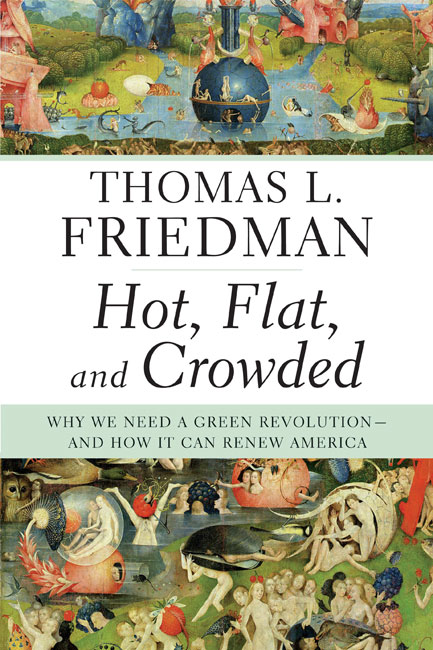 I have been doing some reading at my turtle's pace. I have been doing some thinking as well (at a similar pace it would seem). I've been reading Thomas L. Friedman's most recently updated book Hot, Flat, and Crowded. So far I'm really diggin it. In one part he cited a guy by the name of Dov Seidman who is the CEO of LRN. Dov explains that there are two types of business relationships: situational and sustainable. The difference between the two all come down to values. In a situational relationship you are only concerned with what you can get out of the right here and the right now. In the sustainable relationships you are worried more about your the long term success of your company and your customer and your environments (economic and natural).
I have been doing some reading at my turtle's pace. I have been doing some thinking as well (at a similar pace it would seem). I've been reading Thomas L. Friedman's most recently updated book Hot, Flat, and Crowded. So far I'm really diggin it. In one part he cited a guy by the name of Dov Seidman who is the CEO of LRN. Dov explains that there are two types of business relationships: situational and sustainable. The difference between the two all come down to values. In a situational relationship you are only concerned with what you can get out of the right here and the right now. In the sustainable relationships you are worried more about your the long term success of your company and your customer and your environments (economic and natural).
Now as I had alluded to before it is all about your values. The reason that I say this is because, as Thomas points out, we could have had all the regulations that the brightest legislators could of ever conceived but it would not have delayed our Great Recession because regulations tell people what they can and can not do. Values tell us what we should do. With out buying into the values of sustainability, all of the people who made decisions that lead us to the current state of affairs would not have asked themselves what they should do but rather a how they could do what they wanted to do with out getting caught overtly transgressing the imposed regulations.
I could not help but draw some parallels between this messy situation and my own little slice of heaven. The demographic of my school is about 90% Low German Mexican Mennonite immigrants with a sprinkling of more "traditional" western Canadian kids. In our school we have tried modeling our values. We have tried enticing the our students. Some of us have even tried legislating crowd sourced regulations (aka classroom rules). Our kids do not share our values (granted, this is a blanket statement that has too many holes to keep me warm at night but I still believe that it holds enough water to be useful diagnostically). I believe that this may be the missing link. We can make all of the rules and regulations that we want but until they buy into our value system they will only have a situational relationship with us and try their best not to get caught overtly transgressing the imposed regulations.
Where does this leave us? Well, I'm lost. But I believe that this is an opportunity for us to find and define ourselves. The first thing that I think that we need to do as a community is to define for ourselves what our core values are. And I'm talking like our top four or five most relevant, significant, overarching values that encompass all of the seemingly silly things that we ask our little angels to do. From there we can move away from our class room regulations and move toward exemplars of how we uphold our shared community values. We can have a Star Value for each month with activities and more incentives and contests. We can make it a regular part of our classroom discourse. We need to overtly identify, advertise and promote these values so that our kids can finally see where we are coming from and why we expect the things of them that we do. My greatest hope is that this will help the next time that they are faced with a choice to ask themselves what they should do instead of what they can get out of the situation in the right here and right now.
Sorry for yet another rant but I was inspired and I had to share it with you. You've probably already considered this stuff. Let me know what you think our values should be.







